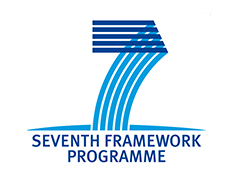Print

Development of cardiomyocyte replacement strategy for the clinic: CARDIOCELL
Details
Locations:France, Germany, Sweden, UK
Start Date:May 1, 2009
End Date:Oct 31, 2012
Contract value: EUR 3,586,220
Sectors: Health, Research & Innovation
Description
Programme(s)
FP7-HEALTH - Specific Programme "Cooperation": Health
Topic(s)
HEALTH-2007-2.4.2-5 - Cell therapies for the treatment of heart ischemia
Call for proposal
FP7-HEALTH-2007-B
Funding Scheme
CP-FP - Small or medium-scale focused research project
Grant agreement ID: 223372
Objective
Heart failure as a result of myocardial infarction or ischemic heart disease is a major health problem in Europe. Currently the only long term solution is heart transplantation but one in three patients die while awaiting a match. Transplantation of an alternative cell source is extremely attractive but has so far met with very little success. Thus, skeletal muscle myoblasts led to recurrent arrhythmias with potential lethal effects, whereas the hopes for bone marrow transplantation have been largely dashed by the low efficiency and lack of evidence for trans-differentiation. In this project, we plan to mount a concerted and integrated effort to identify cells within the adult and developing heart with repair potential. We will characterise the cells to enhance their purification from, or stimulation within, foetal or adult tissue. In addition, we will determine how they are made during embryonic development to further improve the chances of manipulating their activity in vivo and also to increase the efficiency of their generation from embryonic stem cells. Cardiomyocytes generated in any of these ways will be genetically profiled and physiologically tested, both in vitro and after transplantation, to ensure their proper functional integration into the resident myocardium. In preparation for eventual transplantation into patients, we will explore biomatrices as supports for these cells and also approaches to suppressing the inflammatory response to increase the chances of graft survival.

